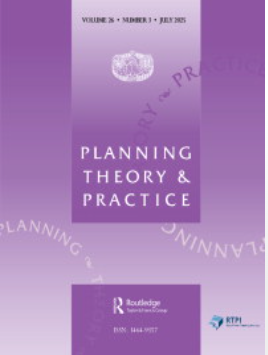Planning networks are the dominant instrument for collaborative planning scholars to describe distributed modes of social organization. This limited perspective cannot capture the diversity of collaboration forms that emerge in sociotechnical transitions. The paper proposes the actor-network concept as an alternative to assess which new forms of collaboration align planning with socio-technical transitions. Inspired by Actor-Network Theory (ANT), it traces controversies related to the model of implementing Low Emission Zones (LEZs) in Spain and elaborates a narrative showing how traditional planning actors reassembled into unexpected associations.

